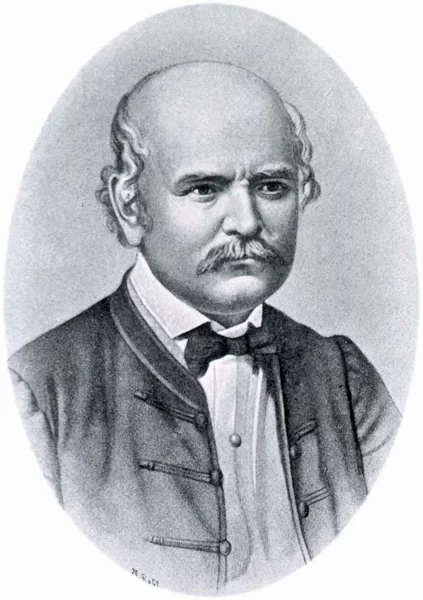It Takes a Few Heretics

As I get older I seem to be more and more aware of the numerous ways in which the world doesn’t often work as it should. This is why many people want to believe in things like Karma, as it gives some sense of justice eventually (even if we never see it).
I don’t believe in Karma, and I don’t think things always balance out as they should, at least on this side of Heaven. I recently finished Cody Cassiday’s book called Who Ate the First Oyster? It’s about numerous people throughout history who were the first to try something. His retelling of the story of soap stood out to me in particular.
In 1847 Dr. Ignaz Semmelweis, a Hungarian obstetrician working at the Vienna General Hospital, began investigating a mystery. Why did birthing mothers under the care of his doctors die at a rate five times greater than by those cared for by only his midwives? Semmelweis insisted his doctors follow every one of his midwife’s birthing techniques. He even went so far as to ban priests from ringing bells in the doctor’s wards because they didn’t in the midwives’. Nothing worked. But when a colleague of Semmelweis’s died after performing an autopsy of the same maternal fever that plagued mothers, he tried a new theory. He knew his doctors often performed autopsies before they assisted mothers, while his midwives did not. Perhaps, he reasoned, they carried some deadly particle or smell from cadavers to mothers, and thus he asked them to wash their hands.
We read this story today as a painfully obvious reality, yet it was not always this way. As we would expect, after the doctors began using soap “The death rate immediately plunged.”
But this is where the story takes a sad turn. Rather than the universal acceptance of doctors washing their hands and Dr. Ignaz Semmelweis becoming an international hero, just the opposite happened.
Semmelweis’s doctors quickly mutinied at the suggestion that they were responsible for killing their patients. He was fired, the doctors stopped washing their hands, and Semmelweis eventually perished in an insane asylum.
Sometimes you have to go against the crowd for the sake of what you know in your soul to be right, even if it means it will cost you dearly. What is accepted collectively is often not right for a number of reasons. Progress can be a slow ship to steer. Even though Semmelweis was spot on with his observation about doctors and soap, he was outdone by the established leaders in his industry who had the power to overrule him, at least in the short term. The same often happens today.
It reminds me of an interesting insight from an American Theologian named James Cone. As he reflected on the history of slavery (and its support from Christians using the Bible), he wrote that “Black theology believes that the spirit of the authentic gospel is often better expressed by ‘heretics’ than by the ‘orthodox’ tradition.” Cone observed it was those Christians who had the ‘orthodox’ faith (at that time) that were the ones who made slavery possible. It took a few heretics for change to happen.
We’re not done moving forward, making progress, and working to bring more of heaven down to earth. We need a few more outliers in the process who are willing to experience a bit of loneliness and personal cost to help us get there.
We're not done moving forward, making progress, and working to bring more of heaven down to earth. We need a few more outliers in the process who are willing to experience a bit of loneliness and personal cost to help us get there. Share on X
Do You Want to Read the Bible Without Falling Behind?
Sign up your email and I’ll send you a PDF to download and use my custom-made reading plan system. There’s no way to fall behind on this system and every day will be different no matter how long you use it!
I’ll send future content directly to your inbox AND you can dive into the Bible like never before.




